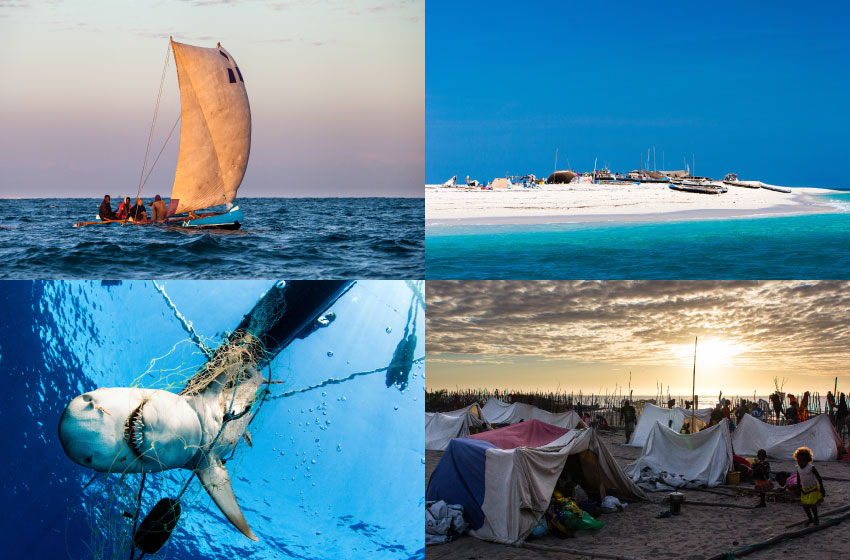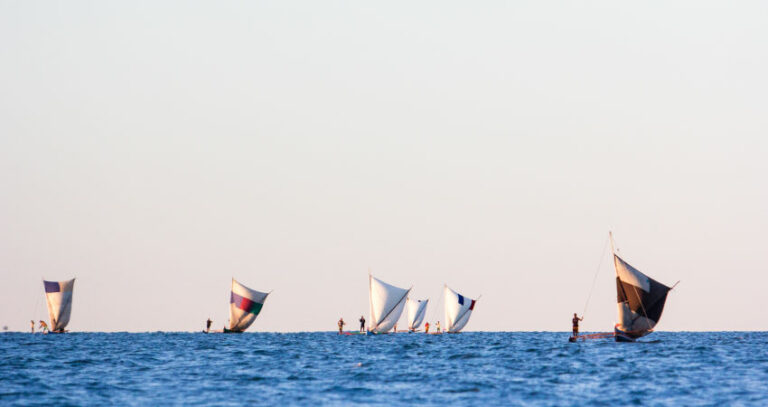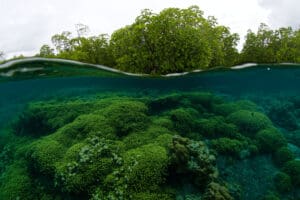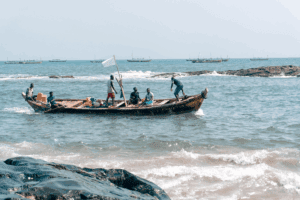Soaring global demand for seafood is driving a perilous sea migration in one of the world’s last nomadic seafaring cultures
At a time when global concerns over the economic impacts of human migration from conflict in north Africa and the middle east dominate news headlines worldwide, other drivers of migration receive conspicuously less attention. Such journeys of survival − driven by climate change, poverty, and environmental degradation − may be equally perilous, carrying a huge human cost.
New research published today in the journal Geoforum documents the extent to which international markets − particularly for shark fin and sea cucumbers in China − are driving isolated coastal communities in the Indian Ocean to push the limits of a once traditional ocean migration − travelling further, for longer, and taking greater risks − than ever before.
Overfishing has decimated fish stocks and marine ecosystems throughout much of the world’s oceans. Nowhere is this loss felt more keenly than on the Mozambique Channel coast of Madagascar, where traditional Vezo fishing communities have few alternatives to fishing for food or income.
Faced with rapidly dwindling catches in the waters adjoining their home villages the Vezo navigate distances of up to 1,000 kilometres each year in search of viable fish stocks. Sailing north up the Mozambique Channel in simple dugout canoes with no engines or navigation equipment, Vezo migrants make camp on intertidal sandbanks and coral islands. Camps − makeshift settlements of migrant families for up to 9 months at a time − may be dozens of kilometres out to sea, and completely inundated at high tide.

“Here the Vezo live on the very margins of society, leading a traditional life in the most remote places yet highly connected to global markets”, said Dr Garth Cripps of Blue Ventures Conservation, lead author of the study.
Living beyond the reach of even the most basic services and infrastructure, Vezo migrants live lives of uncertainty battling forces of globalisation and climate change that are beyond local control.
“While life on the islands is tough, they face a bleaker life in their home villages where fish stocks are close to collapse. Migration has become a critical way to make enough money so that they can look after their families. Stopping migration will just make fishers even poorer.”
The Vezo maintain animist traditions that chart the origin of their people in a union between a mermaid and a fisherman. Daily life is steeped in cultural norms and taboos, which often prohibit practices that may be damaging to marine sustainability.
But “The prices Chinese markets offer for shark fins and sea cucumbers – a fortune to a poor Malagasy fisherman – mean that Vezo migrants disregard key local taboos. They also see that outsiders – such as illegal scuba diving teams – have scant regard for their traditional customs and the environment.”
The inexhaustible global markets that provide a lifeline for the Vezo are also undermining the fragile waters and coral reefs on which the Vezo depend. With few remaining pristine fishing grounds to visit, the Vezo face stiff competition for declining catches, driving migrants to compete and fish harder for the few remaining fish. Cultural norms are increasingly abandoned in favour of modern destructive fishing techniques, often driving conflict between migrants living offshore and local resident communities.
Recognising the need to address these threats to fishing livelihoods, the Vezo are at the vanguard of a national movement to promote locally led marine conservation around Madagascar’s coasts. Since establishing the first locally managed marine area (LMMA) in 2006, this model of securing local fishing rights for traditional fishers has spread throughout the island, now covering over 12% of Madagascar’s inshore seabed, and receiving a presidential commitment to support grassroots efforts to triple this coverage over the coming decade.
By mitigating outside threats to fisheries sustainability within these locally policed conservation zones − such as habitat destruction by industrial seabed trawlers − populations like the Vezo are taking control of the natural resources on which their survival depends, creating a compelling model for coastal communities throughout the global south.
Now spearheaded by a central national coordination unit, Madagascar’s LMMA movement is focused on championing the traditional fishing rights of communities like the Vezo. That this movement has been achieved in one of the poorest countries on earth, and during a decade of severe political unrest, instability, and international sanctions, is a testament to the endurance and robustness of locally-led approaches to environmental sustainability.
Read the full paper: Human migration and marine protected areas: Insights from Vezo fishers in Madagascar
Find out more about our community conservation work


















